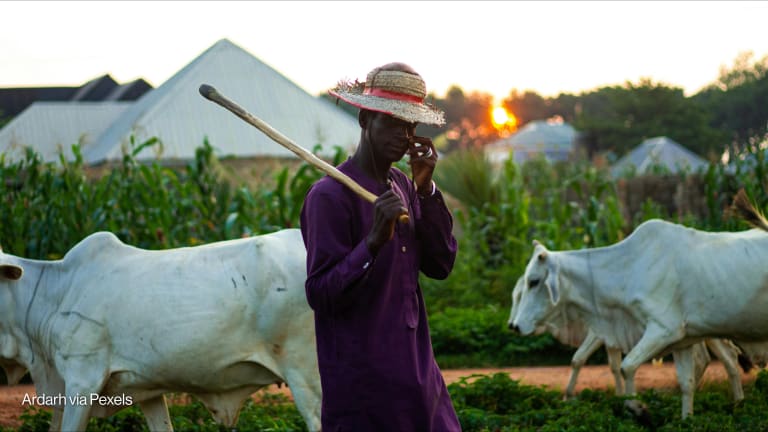Support for rivers runs dry despite their role in food production

Over a third of global food production depends on rivers yet they remain overlooked, undervalued, and increasingly threatened, according to a new report by conservation organization World Wildlife Fund.
Get the inside track on how agriculture, nutrition, sustainability, and more are intersecting to remake the global food system in this weekly newsletter.
According to “Rivers of Food,” 25% of the world’s food comes from cropland irrigated by river water. River sediment also creates and sustains deltas, which produce 4% of food, and flood recession agriculture covers an estimated 10 million hectares, which produces around 1%. Additionally, 40% of global fish consumption relies on rivers.
Despite playing such a significant role in food production, there is little conversation about them, Brent Loken, lead global food scientist at WWF and co-author of the study, told Devex. “Very rarely do we hear about rivers but they’re really the arteries of the planet and for some reason, they’re overlooked and forgotten,” he said.
“We can increase global food production in ways that are nature-positive and support our shared goals for healthy people and the planet, but only if we sustainably manage our rivers so they are healthy and resilient.”
— Brent Loken, lead global food scientist and co-author of “Rivers of Food,” WWFAnd rivers are also under threat. The overuse of water, overfishing, pollution, and climate change are affecting the quality and quantity of this resource, jeopardizing efforts to sustainably feed an estimated global population of nearly 10 billion people by 2050. To meet that demand, the Food and Agriculture Organisation projects that overall food production will need to increase by 70%. With 75% of the world’s irrigated crops growing in water-stressed areas, this poses a challenge.
“If we continue to impact the health of rivers … obviously, it’s going to hurt food,” Loken said. Despite this, when people think about water and its connection to food security, they only tend to think about oceans rather than rivers, he added.
The report comes as the U.N. Food Systems Summit — which WWF says has neglected to include “the critical role that rivers play in feeding humanity” in the dialogue — takes place in New York. Loken said a similar emphasis on oceans and little mention on rivers can also be seen in the UNFSS’s new Aquatic Food Solution Cluster, which aims to highlight the role of aquatic foods — fish, shellfish, aquatic plants, and algae — within the food systems agenda.
“With the international community, for some reason, it’s been overlooked. Why? I don’t have a specific rationale for that … It’s not ill-intent, it's just never been that rivers have been highlighted in the way they should,” Loken said.
To remedy this, WWF is calling for action to be taken to restore and protect rivers. It suggests a transformation to nature-positive food production, an emphasis on ensuring sustainable fisheries and safeguarding free-flowing rivers, and a switch for individuals to healthy and sustainable diets.
Opinion: Ensuring UN Food Systems Summit makes an impact
Data, accountability, and equity are key to truly improving food systems.
“What we’re advocating for is not some new technology or crazy idea that we have to do, some sort of technological leap we have to make, everything that we have is right there. It's more about willpower, raising awareness, and implementing what we do. That’s the good news story,” he said.
Nature-positive food production includes approaches that reduce water use, decrease river pollution through the use of buffers, restore biodiversity by integrating nature into agricultural lands, and decrease greenhouse gas emissions through better soil and manure management.
For example, in Bangladesh, agribusiness company Pumpkin Plus — with support from Water Energy for Food — is helping farmers grow food on river sandbars left behind after the rainy season. Sandbars were previously thought to be barren but the “sandbar cropping method,” which transforms silted land into a productive field is changing that.
“We can increase global food production in ways that are nature-positive and support our shared goals for healthy people and the planet, but only if we sustainably manage our rivers so they are healthy and resilient,” Loken said.

Search for articles
Most Read
- 1
- 2
- 3
- 4
- 5








